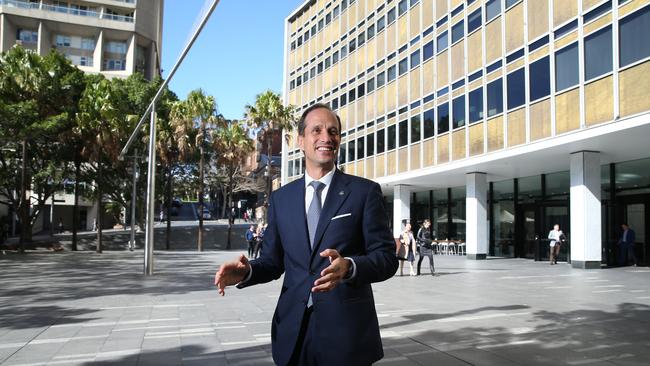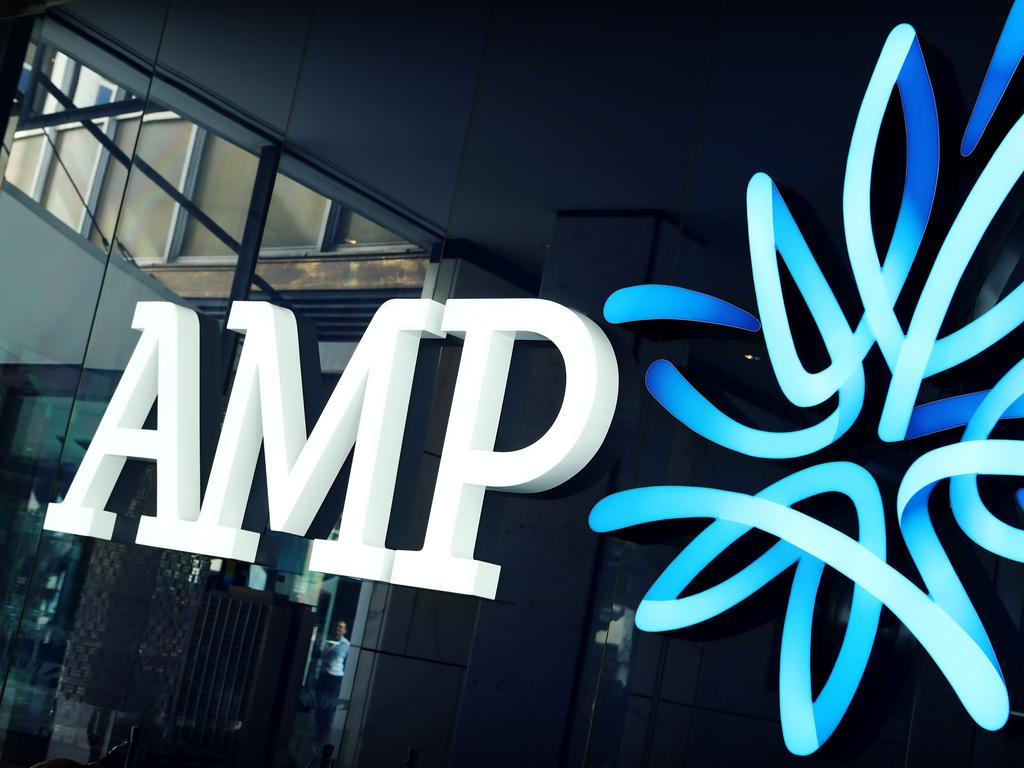Ownership Matters calls for vote against AMP remuneration
Another influential proxy adviser has called on shareholders to vote down the ‘disproportionately large’ incentives paid to AMP executives.

A second proxy advisory firm has called on investors to vote against AMP’s pay report, heaping pressure on the wealth group’s board as it seeks to avoid a 2020 strike on remuneration.
The move came as AMP released fresh figures showing it suffered a large drop in assets under management at its embattled wealth unit during the March quarter, stemming from COVID-19 market falls and net cash outflows of more than $1.9bn.
Proxy firm Ownership Matters on Thursday joined peer ISS in telling shareholders to vote against AMP’s remuneration report, with both suggesting executive pay was overly generous and performance hurdles not rigorous enough.
“The transformation incentive — set at five times fixed pay for most senior executives and $7m for the CEO — permits significant vesting for performance below that of AMP’s ASX 100 financial services peers so long as AMP’s TSR (total shareholder return) is positive,” the Ownership Matters report said.
“A quarter will vest should AMP’s TSR be positive, and its TSR underperform an equally weighted index of peers by 25 per cent over the period August 2019 to February 2023. Half will vest for performance 10 per cent below the peer index over this period; 75 per cent will vest for performance in line with that of the index.”
The report added the rewards appeared “disproportionately large”, even taking into account the challenges facing AMP as chief executive Francesco De Ferrari executes on his three-year transformation strategy.
It comes ahead of AMP’s annual meeting on May 8, and as institutional and retail shareholders decide how they will cast their votes ahead of the virtual meeting.
Mr De Ferrari’s pay package was a bumper $13.43m last year, and investors are being asked to sign off on a revised 2019 “recovery incentive” to offset shares and pay from prior employer Credit Suisse.
Ownership Matters cautioned shareholders that AMP no longer sought approval for CEO equity incentives, meaning the “only way to register opposition to the structure of the transformation incentive” was to vote against the pay report.
Earlier this week ISS urged a vote against AMP’s pay report, citing “grossly excessive” long-term bonuses and a misalignment of remuneration with shareholder interests.
AMP last year avoided a second strike against pay as more than 89 per cent of investors voted in favour of the remuneration report. In 2019, however, Ownership Matters, ISS and CGI Glass Lewis all advised investors to approve AMP’s pay.
A company spokesman reiterated AMP’s remuneration approach focused on “incentivising executives to drive the transformation”.
“We will continue to maintain an open dialogue on our approach to remuneration,” he said.
Ownership Matters also joined ISS in telling investors to approve AMP’s other AGM resolutions. They include the re-election of Trevor Matthews and the election of Debra Hazelton, Rahoul Chowdry and Michael Sammells as non-executive directors.
The AGM follows Mr De Ferrari last month removing guidance for 2020 underlying profit to be “broadly flat” on last year, as a spate of companies withdrew expectations in light of the COVID-19 economic impact.
Earlier on Thursday, AMP updated the market on the March quarter which showed its flagship wealth arm continued to see net cash outflow.
AMP said assets under management as at March 31 slumped 13.5 per cent to $116.3bn, largely reflecting weaker markets.
Net cash outflow of $1.9bn in the March quarter took into account inflow of $5.8bn buoyed by an increase in funds on its North platform. But that was exceeded by outflow of $7.7bn, which included the expected exit of several corporate superannuation mandates.
The outflows also took into account pension payments and the impact of the federal government’s Protecting Your Super legislation.
AMP is not alone in being dealt a blow by severe market movements.
On Wednesday, annuities group Challenger reported a 10 per cent hit to its funds under management during the March quarter, with its portfolio seeing some redemptions.
AMP’s shares closed 0.8 per cent lower at $1.295 on Thursday.
UBS analyst Kieren Chidgey said the wealth division’s net outflows “marginally eclipsed” AMP’s previous quarterly record in September last year.
“While net outflows on AMP’s retail platforms eased slightly, as AMP narrows its aligned adviser footprint and COVID-19 market and mobility impacts continue into the second quarter 2020, near-term prospects for improved net flows appear low,” he added.
Allan Gray managing director Simon Mawhinney labelled the AMP update “pretty innocuous”.
“Wealth management net outflows have continued but this would have been anticipated and they don’t appear to be worsening significantly,” he said. “AMP Capital seems to be performing well under the circumstances.”
Mr De Ferrari emphasised AMP was navigating the COVID-19 uncertainty and responding to record client inquiries.
“Markets in Q1 (first quarter) were extremely volatile, particularly in March, with significant falls in equities, fixed income and key commodities impacting our assets under management. We have seen some recovery since the quarter-end, but expect market volatility to continue and the economic impact of the pandemic to emerge over the remainder of the year,” he said.
AMP’s infrastructure and real estate arm AMP Capital saw assets under management at March 31 decline 5.3 per cent to $192.4bn, compared with the prior three months, largely due to weaker markets.
AMP Capital’s net external cashflow increased to $1.3bn in the quarter, underpinned by “strong inflows” in China Life AMP Asset Management.
During the March quarter, the division’s outflow included the return of $300m to investors in debt funds. It has $8.1bn in committed capital available for investment.
AMP’s bank saw its loan portfolio grow to $20.8bn in the March quarter as home loan volumes increased. Total deposits rose.
AMP posted a 32 per cent slump in 2019 underlying profit and a $2.5bn statutory loss, due in part to impairment charges and massive fund outflows.
Following Thursday’s update investors are also keen to understands how AMP views its capital position and ability to return any surplus on completing the sale of its life insurance business. AMP expects to complete the $2.5bn divestment by June 30.
The Australian Prudential Regulation Authority has released a directive on capital management during the pandemic, though, calling for boards to seriously consider deferring dividends or materially reducing them.
APRA also made reference to pay, saying it expected boards to “appropriately limit” executive cash bonuses during the challenging environment.
AMP’s market update also showed assets under management in its New Zealand unit declining. Assets under management fell 9.8 per cent to $11.1bn.







